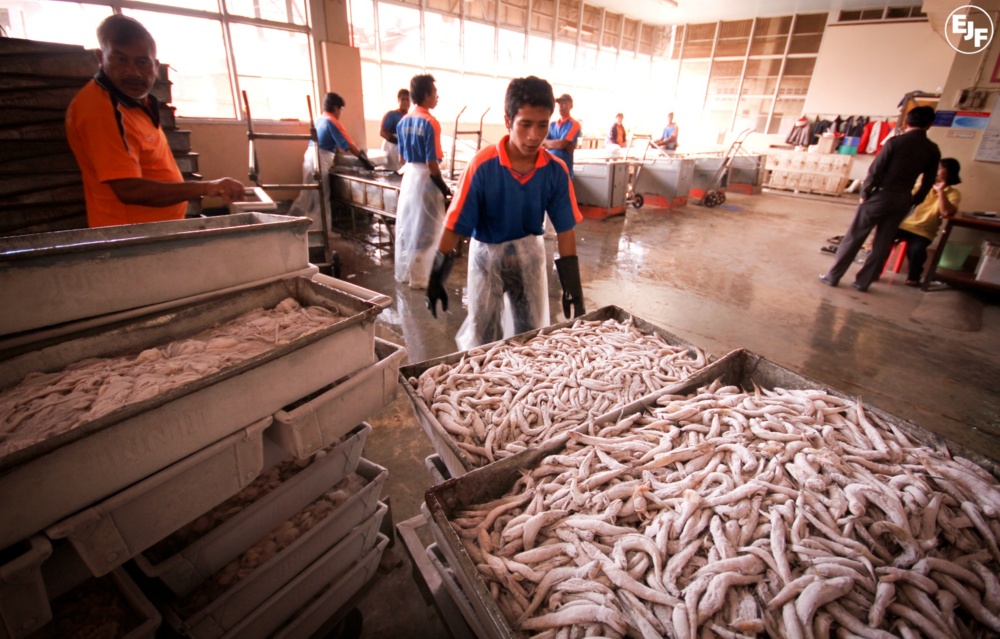
Is Germany going far enough to tackle slavery at sea?
In our modern world, where goods are traded across the globe, it is not an easy task for consumers to stay aware of where their products come from, or how they are being processed and made.
But whose responsibility is it to make consumers more aware? And what role do companies and retailers have in helping to eradicate any possible environmental and human rights abuses within their supply chains by themself?
Today, the German government is looking to address this question.
After two years of negotiations, the government is finally adopting its guidelines for implementing the UN’s Guiding Principles on Business and Human Rights – a powerful tool to push companies into tackling human rights abuses worldwide.
The “Nationaler Aktionsplan Wirtschaft und Menschenrechte” is positive news. But Germany can and must go further.
Today’s plan was very thorough in laying out voluntary principles and guidelines to follow for corporate companies, but it falls short of requiring them to act, or ensuring transparency and culpability by requiring them to provide reports on their progress. Meanwhile, in its current form, the new plan only accounts for businesses with over 500 employees. Sanctions or financial penalties for shortcomings are not foreseen.
The German government would do well to follow the example of other European countries who have shown themselves to be more progressive. For example, the UK’s Modern Slavery Act requires companies to report on their efforts to prevent slavery in their retail chains.
Taking action to eradicate slavery in our supply chains will be vital for the seafood industry.
Through the very nature of their work, fishers operate in isolated and hazardous conditions. Overfishing and the subsequent rise in fishing costs have left these workers extremely vulnerable to trafficking, forced and slave labour and abuse and violence on-board fishing vessels, as unscrupulous companies attempt to keep costs low.
Over the last three years, EJF has uncovered widespread and severe abuse in Thailand’s seafood sector, where workers operate for little or no money and under the constant threat of violence and even murder. Much of the seafood produced by these workers enters Western markets unchecked.
In Germany, 87% of fish and fish products consumed are imported from overseas, and it is vital that companies are aware of the potential human rights abuses in every part of their supply chain.
Knowing where, and under what conditions, seafood is caught is vital to building sustainable and legal fisheries, and as EJF continues to tackle human rights abuse at sea, and the illegal fishing practices that drive it, a key part of our work is collaborating with governments and industry to take decisive action to ensure transparency and traceability.
Voluntary guidelines are an important first step. But further steps are crucial, and the German government has said that, if less than half of large companies in German adopt human rights due diligence by 2020, it will reconsider implementing legislation.
We would like to see the German government introducing concrete policies requiring companies to look further into their retail chains. This would enable us to take another step towards eradicating slavery and protecting consumers against unwittingly buying products tainted with human rights abuses.
SIGN UP FOR OUR EMAILS AND STAY UP TO DATE WITH EJF